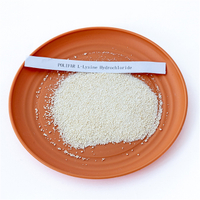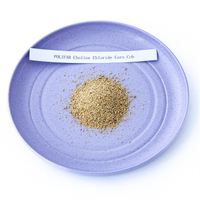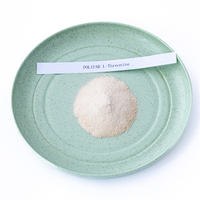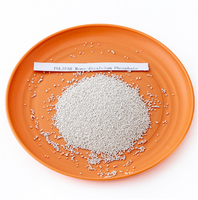Views: 0 Author: Site Editor Publish Time: 2024-08-30 Origin: Site









L-Leucine is an essential amino acid that plays a critical role in the human body. As one of the three branched-chain amino acids (BCAAs), it is crucial for muscle protein synthesis and overall metabolic health. Unlike some amino acids, L-Leucine cannot be produced by the body, making it essential to obtain through diet or supplementation. In the food industry, L-Leucine is increasingly recognized for its value as a nutritional supplement, especially in food additives aimed at enhancing health and wellness.
L-Leucine is renowned for its significant impact on health, particularly in muscle and metabolic functions. As a key player among the branched-chain amino acids (BCAAs), L-Leucine offers multiple benefits:
Muscle Protein Synthesis:
L-Leucine is essential for muscle protein synthesis, the process by which the body builds and repairs muscle tissue. It activates a crucial protein called mTOR, which signals the body to increase muscle production. This makes L-Leucine vital for athletes, bodybuilders, and anyone engaged in regular physical activity, as it supports muscle growth, reduces muscle breakdown, and enhances recovery.
Muscle Recovery and Growth:
After intense exercise, muscles need time and nutrients to repair and grow. L-Leucine accelerates this process by promoting faster recovery and reducing muscle soreness. It also helps maintain lean muscle mass during periods of calorie restriction, making it a valuable supplement for those looking to build or maintain muscle while losing weight.
Blood Sugar Regulation:
L-Leucine plays a role in regulating blood sugar levels by improving insulin sensitivity. This helps the body manage glucose more effectively, reducing the risk of insulin resistance and type 2 diabetes. For individuals with metabolic concerns, L-Leucine can be a beneficial addition to their dietary regimen.
Energy Production:
During exercise, L-Leucine can be used as a quick source of energy. It helps preserve muscle glycogen stores by providing an alternative energy source, which is especially important during prolonged physical activity. This not only sustains performance but also prevents muscle fatigue.
Wound Healing and Metabolism:
L-Leucine supports tissue repair and wound healing by supplying the necessary building blocks for new tissue. Additionally, it contributes to overall metabolic function, supporting processes such as fat metabolism and hormone regulation.
L-Leucine is widely utilized in various food products, particularly in the health and wellness sectors. Its versatility as an amino acid makes it a valuable addition to many formulations, enhancing both the nutritional profile and the functional benefits of food products. Here are some key applications:
Sports Nutrition Products:
L-Leucine is a staple in sports nutrition. It is commonly found in protein powders, energy bars, and recovery drinks aimed at athletes and fitness enthusiasts. Due to its critical role in muscle protein synthesis and recovery, L-Leucine is essential for those seeking to build or maintain muscle mass. Products like whey protein and BCAA supplements often contain high concentrations of L-Leucine to maximize their effectiveness in promoting muscle growth and reducing fatigue.
Dietary Supplements:
Beyond sports nutrition, L-Leucine is a popular ingredient in dietary supplements designed for general health and wellness. These supplements are often targeted at older adults or individuals looking to maintain muscle mass, improve metabolism, or support overall energy levels. L-Leucine is included in formulations aimed at preventing muscle loss (sarcopenia) and enhancing recovery from illness or injury.
Functional Foods:
Functional foods are products that provide health benefits beyond basic nutrition. L-Leucine is increasingly added to functional foods like protein-enriched cereals, yogurt, and meal replacement shakes. These foods are designed to support muscle health, weight management, and energy levels, making them attractive to health-conscious consumers. The inclusion of L-Leucine enhances the protein content of these products, making them more effective in supporting fitness and wellness goals.
Medical and Therapeutic Foods:
In the medical nutrition field, L-Leucine is used in specialized food products for patients recovering from surgery, trauma, or chronic illness. These therapeutic foods are formulated to meet the nutritional needs of patients who require extra support in muscle maintenance and recovery. L-Leucine’s ability to stimulate muscle protein synthesis makes it an essential component of these medical-grade products.
Food Fortification:
L-Leucine is also used to fortify everyday foods, enhancing their nutritional value. Examples include fortified beverages, snacks, and ready-to-eat meals that are designed to provide additional protein and essential nutrients. By incorporating L-Leucine, manufacturers can offer consumers a convenient way to boost their daily intake of essential amino acids, supporting overall health and wellness.
The use of L-Leucine as a nutritional supplement in food additives is growing. Food manufacturers are increasingly adding L-Leucine to their products to improve their nutritional value. Whether it's fortifying ready-to-eat meals or enhancing the protein content of snacks, L-Leucine is a beneficial additive that supports health-conscious consumers. Examples of products enriched with L-Leucine include fortified cereals, protein shakes, and meal replacement bars.
L-Leucine is considered safe for consumption when used appropriately. The recommended daily intake varies, but it is generally well-tolerated. Regulatory bodies like the FDA and EFSA recognize L-Leucine as a safe additive when used within approved limits. However, as with any supplement, it is important to follow usage guidelines to avoid potential side effects, such as gastrointestinal discomfort when consumed in excessive amounts.
The market for L-Leucine has been experiencing significant growth, driven by increasing consumer awareness of its health benefits and the rising demand for high-protein, functional foods. Several key trends highlight the growing importance of L-Leucine in the food and supplement industries:
Rising Popularity of Protein-Enriched Products:
Consumers are increasingly seeking protein-enriched foods and beverages to support various health goals, such as muscle building, weight management, and overall wellness. L-Leucine, known for its critical role in muscle protein synthesis, is a sought-after ingredient in these products. As more people adopt active lifestyles and prioritize fitness, the demand for protein supplements, energy bars, and fortified foods containing L-Leucine continues to rise.
Growth in Sports Nutrition:
The sports nutrition market is one of the fastest-growing segments for L-Leucine. Athletes and fitness enthusiasts prioritize supplements that enhance performance, aid in muscle recovery, and promote lean muscle mass. L-Leucine, often included in BCAA supplements and protein powders, meets these needs, making it a key ingredient in the sports nutrition sector. This trend is further fueled by the growing popularity of strength training, bodybuilding, and endurance sports.
Health and Wellness Boom:
Beyond sports nutrition, the general health and wellness market is also embracing L-Leucine. As consumers become more health-conscious, they seek out products that offer specific health benefits, such as improved metabolism, better blood sugar regulation, and enhanced muscle maintenance. L-Leucine’s versatility makes it a popular choice for functional foods and dietary supplements aimed at the broader health-conscious population.
Aging Population and Sarcopenia Prevention:
With an aging global population, there is a growing focus on preventing age-related muscle loss, known as sarcopenia. L-Leucine plays a vital role in combating this condition by stimulating muscle protein synthesis, making it a key ingredient in supplements and functional foods targeted at older adults. Products designed to support healthy aging are increasingly incorporating L-Leucine to address the nutritional needs of this demographic.
Innovation in Food and Beverage Formulations:
Food manufacturers are continuously innovating to meet consumer demand for high-protein and functional products. L-Leucine is being incorporated into a wide range of new and reformulated products, from plant-based protein snacks to ready-to-drink protein beverages. These innovations cater to diverse dietary preferences, including vegan, gluten-free, and low-carb options, expanding the market reach of L-Leucine.
Global Market Expansion:
The demand for L-Leucine is not limited to specific regions; it is growing globally. Emerging markets in Asia, Latin America, and Eastern Europe are witnessing increased consumer interest in sports nutrition and functional foods, driving the demand for L-Leucine. Additionally, as awareness of L-Leucine’s benefits spreads, more consumers worldwide are seeking out products that include this essential amino acid.
L-Leucine is more than just an amino acid; it is a powerful nutritional supplement that offers a host of health benefits. From supporting muscle growth to enhancing metabolic functions, its role in human health is significant. For food manufacturers, incorporating L-Leucine into products not only boosts their nutritional value but also aligns with consumer trends toward healthier eating. As the market for L-Leucine grows, its importance as a food additive will only increase.






